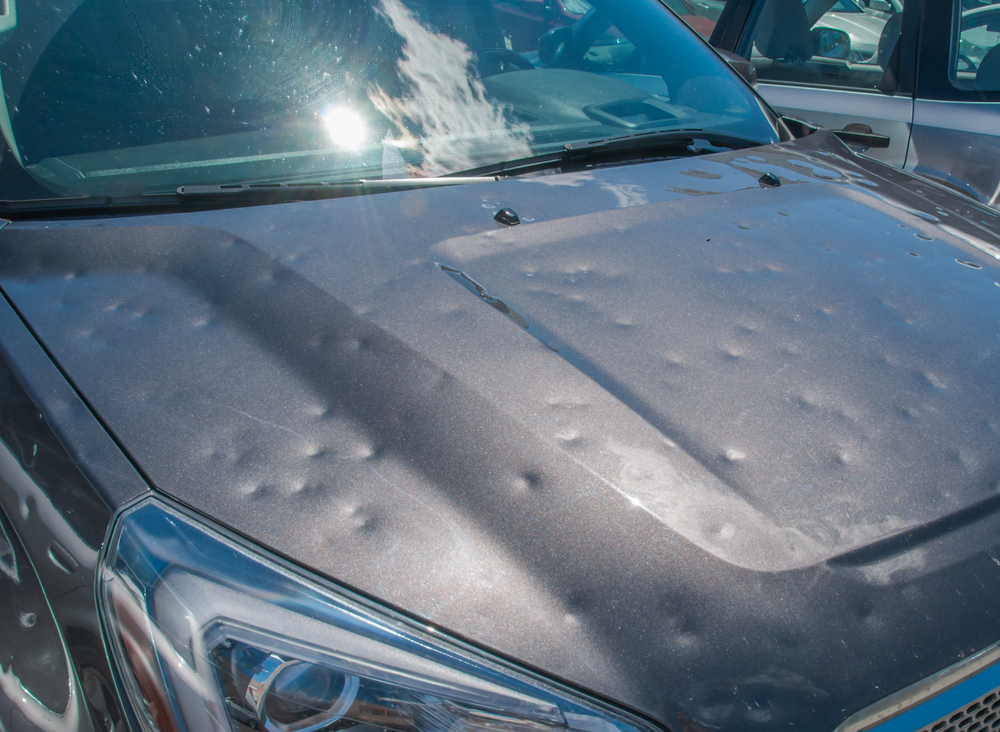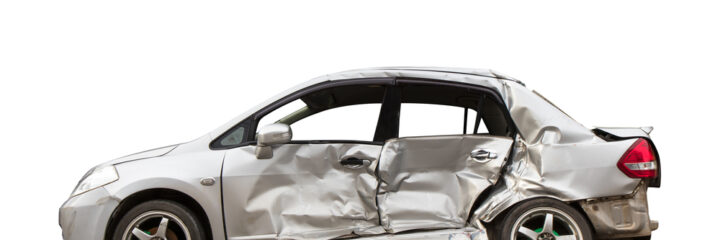If you’re interested in buying a used car, you may have come across cars with different types of titles. Brand-new cars and certified pre-owned cars purchased from auto dealerships will have clear titles. This means that the car has never suffered any major damage.
Branded and salvage titles, however, let prospective buyers know that a vehicle has undergone significant damage and may have been considered totaled by insurance companies at some point. Damage may have been a result of anything from accidents like getting rear-ended to weather damage to theft.
However, branded and salvage titles are not exactly the same, and it’s important to know the difference before considering the purchase of any vehicle with branded or salvage titles. In this article, we’ll go over the differences between salvage and branded titles as well as the different types of branded titles out there.
What Is a Salvage Title?
When a car is damaged to the point where the repair cost nears that of the vehicle’s market value, insurance companies will usually count the car as totaled and its title will change from clear to salvage. While the exact laws around salvage titles can vary by state, most cars will be given salvage titles when deemed a total loss.
Because the vehicle is not worth repairing, insurance companies instead pay their client the value of the car so that the client can use that money to purchase a new vehicle. Many insurance companies will then take the totaled car and sell it at an auction.
Because its title has changed to salvage, buyers know that the car has significant damage and is considered unsafe to drive on the road. In fact, it is actually illegal to drive around in a car with a salvage title. For the same reason, you won’t be able to insure a car with a salvage title.
So why do people buy cars with salvage titles? In some cases, buyers are mechanics who plan to rebuild or repair the damage until the vehicle can once again be safely driven on the road. They buy vehicles with salvage titles for cheap prices in the hopes of turning a profit after repairing them.
Otherwise, vehicles with salvage titles are considered “for parts only.” Those who don’t plan to rebuild the entire vehicle may salvage whatever parts they can use to repair other vehicles.
What Is a Branded Title?
“Branded title” is somewhat of a blanket term for any car that has undergone significant damage that resulted in an insurance claim. So, a salvage title is technically a type of branded title.
There are also many other types of branded titles, with water damage, odometer rollback, rebuilt, hail damage, and lemon title brands being the most common. We will go over each of these title brands so you can understand exactly what they stand for.
Water Damage Brand
Cars with water damage title brands are typically those that have been damaged by floods. Floods can cause mold and mildew to grow in the seats and interior and can also damage engines.
Even if you do not live in an area where floods are common, you may still come across some used cars with water damage title brands. This is because cars are often moved across states to areas where they may be more likely to find buyers.
Odometer Rollback Brand
If you’ve ever purchased a car or even just browsed ads online, you’ll have noticed that cars with more miles tend to be a lot cheaper than cars with lower mileage.
Because of this, there are those who will alter the reading of a car’s mileage to be far lower than it actually is. Then, they hike up the price and sell the car for more than it is worth. This is referred to as odometer rollback and is, obviously, illegal.
If it is found that a car’s odometer has been tampered with, the vehicle will be given a title brand to notify potential buyers of this issue. While cars with odometer rollbacks may have never suffered any serious damage, unfortunately, there is usually no way of knowing their actual mileage.
Rebuilt Brand
When a car with a salvage title is completely repaired, it can be given a rebuilt title brand. However, it first has to pass inspection by a certified state inspector to be deemed rebuilt. This way, the car can officially be considered road safe and sold as a used vehicle.
Vehicles with the rebuilt title could have suffered damage from a number of different causes, such as accidents, water, hail, fire, or theft. Though these vehicles must pass inspection before being considered roadworthy again, many insurance companies are reluctant to provide coverage for vehicles with rebuilt title brands.
Hail Damage Brand

Hailstorms can be devastating. According to the National Severe Storms Laboratory, even small hail that is less than an inch in diameter can fall as fast as 25 mph. Large hailstones that exceed 4 inches in diameter can possibly fall at speeds of 100 mph.
Clearly, this can cause a lot of damage to property and vehicles alike. While the laws in states vary, cars with hail damage title brands are those that have been severely damaged by hail to the point where the vehicle can be considered totaled.
In many states, cars with this amount of hail damage are no longer considered road safe. If they are repaired, they have to undergo an inspection before they can be considered roadworthy.
Lemon Brand

Lemon laws were created to protect car buyers from faulty or poorly made products. After all, a new car is a big investment and you shouldn’t have to be stuck with a vehicle that doesn’t operate as it’s supposed to.
Though lemon laws will vary from state to state, typically any car that has major defects that impact the safety of those in it will be considered a lemon. If someone returns a car under the lemon law, its title brand will be changed to reflect that.
However, because lemon laws differ from state to state, a car that is considered a lemon in one state may not be considered a lemon in another state. Some automakers will simply try selling the car in another state where it is not deemed a lemon and thus has a clear title.
Title Washing
When a lemon or any other branded vehicle is moved from one state to another in order to clear the title, this is called title washing. Just as with lemon laws, many states have different requirements for a vehicle to be given a certain brand.
So, one state’s laws may apply a water damage brand to a vehicle while a different state’s laws would not. Dishonest sellers take advantage of this and move cars to states where any brand it has no longer applies and thus the title is wiped clean.
Since the title is clear, buyers would not know that the car has a history of damage or defectiveness. Therefore, it’s always a good idea to use services like Carfax or AutoCheck to look into a car’s history when shopping for used vehicles.
Title Brands Are Indicators of Damage
As you can see, the main difference between a branded title and a salvage title is that a salvage title is a type of title brand. There are a number of different types of title brands and branded titles indicate that a car has undergone significant damage of some type.
A salvage title, specifically, is applied to vehicles that have been considered a total loss by insurance companies and are in a state of disrepair. Vehicles with this title are typically auctioned off for parts, though some people will buy them, repair them, and resell them after the vehicle passes an inspection.
There are many different title brands that describe the type of damage a vehicle has undergone. Unfortunately, differences in state laws provide a loophole for dishonest sellers that allows them to move a vehicle to a state where its brands aren’t recognized, and thus its title is “washed” clean. Therefore, it’s always a good idea to look into a car’s history before making a purchase.


